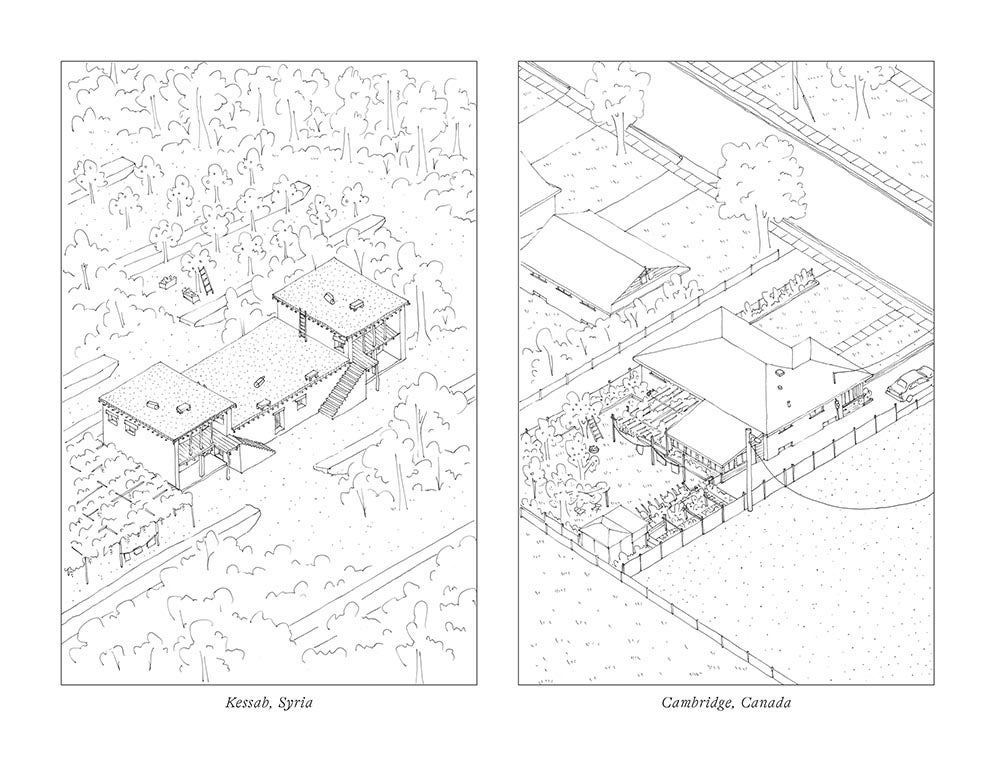The Fading Village: An Archive of Exile and Errantry

Abstract:
Institutional archives—our hegemonic repositories of cultural memory—are in the midst of an identity crisis. They are no longer seen as neutral sites of knowledge retrieval, but rather as instruments of knowledge production. These archives, which are as reliant on their built environs as the matter they safeguard, are in the process of being critiqued, dismantled, and reimagined.
Within this work, I offer my own contribution to the growing body of living- and counter-archival projects which resist the fantasy of completeness and challenge the dominant historical narrative of our epistemological canon.
Ironically, I have undertaken this work during a sedentary time of institutional closures, social distancing, and travel restrictions. So, rather than looking for answers elsewhere abroad, I have chosen to look more closely at the things that have accumulated next to me: viewing the domestic, diasporic home as an archive in itself—one that is alive, growing, and errant.
In the process, I have traced the invisible networks that rearrange a hostland’s environment and tether a diaspora to their homeland—through the things they leave behind, those they bring with them, and others they find (or make) along the way. These everyday artifacts preserve the narratives of communities displaced—whether by economic, political, or environmental crises—and the spatial consequences of their translation.
This work begins and ends in a house—in the home of my grand- parents—who were born in an Armenian diaspora community in the mountains of northern Syria; migrated to Beirut, Lebanon, to raise a family; and then fled as refugees, after almost 15 years of civil war, to permanently settle in Canada. It is here, in the Kess- abtsi community of Cambridge, Ontario, that I draw relations between history, identity, and the land.
In the end, my thesis is an assemblage of writings on the subtle moments of inheritance—when knowledge about a distant and unknown place is unearthed—during long car rides or over coffee in the garden. As I collect, catalogue, and document the artifacts of a place I have never been, I explore a familiar question: What constitutes an archive?
The
examining
committee
is
as
follows:
Supervisor:
Robert
Jan
van
Pelt
Committee
member:
Jane
Hutton
Internal-external
reader
(UW
faculty
only):
Anne
Bordeleau
External
(non-UW
reviewers
only):
Rana
Abughannam
The
defence
examination
will
take
place:
Friday,
January
7th,
2022,
2:00am
Teams
link
available
via
the graduate
student
Learn
page
or
by
request.
The
committee
has
been
approved
as
authorized
by
the
Graduate
Studies
Committee.
A
copy
of
the
thesis
is
available
for
perusal
in
ARC
2106A.